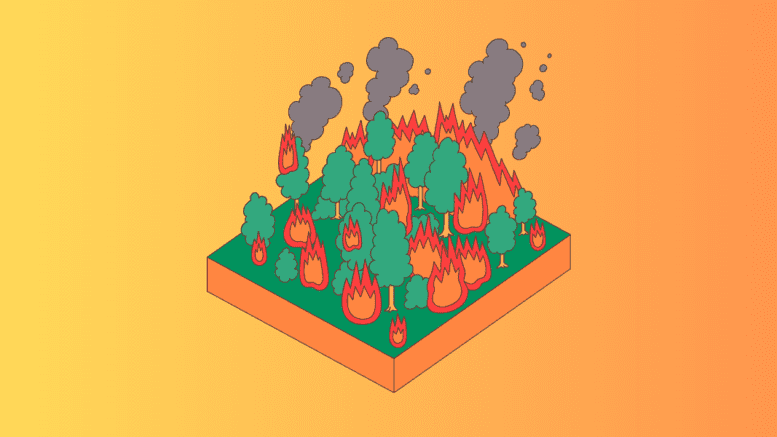By John A. Tures, Professor of Political Science, LaGrange College
Those who know the Bible are apt to remember the story of the Good Samaritan, the one who selflessly aids the victim of robbers on the road between Jerusalem to Jericho, while a priest and Levite leave him to die. Imagine if The Good Samaritan waited months to assist the injured man, or put conditions on giving out any help. That “Good” distinction for the Samaritan would be called into question.
Now imagine that if the money for medical help and hotel room could have been paid for by the wounded man from a secret pouch. What if the Samaritan took it, threatening not to return it until the injured man promises to do what the Samaritan tells him to do.
These actions sound callous, even anti-Biblical. Yet that’s what’s happening with disaster relief. Georgia and North Carolina had to wait months for the assistance aid to flow in from Congress, and it still probably isn’t enough. Those struggling with the fire damage in Los Angeles are now facing a “quid-pro-quo” worthy of Dr. Hannibal Lecter, where conditions are placed on the aid by states that are net “takers,” (who get more from the government than they give) even though these victims of disaster tend to be net “givers” when it comes to funding the government in the first place.
On September 26, Hurricane Helene made landfall in North Florida, then smashed its way through Georgia and North Carolina. This was not some storm where it took awhile to ascertain the damage. The needs were obvious at the time. Even Cobb County was affected by floods in that storm. President Biden was quick to support aid to the people there.
You’d think just before an election, Congress would rush funds to help the people in need, and set aside money for the area to rebuild, from Cobb County through Asheville, Atlanta, West North Carolina and East Georgia. Yet Congress moved deliberately slowly. And why not? With two battleground states and a Democratic President, grinding things to a halt might be politically advantageous. The funds did come, but well after the election. And there’s some question about whether it’s as much as the states need.
Victims of the Palisades blaze are likely to have to wait just as long, if not longer, since they are from “that state.” We know this, because those who suffered from the Maui fire had to wait a good long time for that aid.
California pays the fifth-highest average share of Federal Taxpayer funds (per capita). Florida is 11th, while Georgia is 24th. North Carolina is 33rd., according to the National Taxpayers Union Foundation.
In the cruelest twist of all, that money to the Federal Government is more likely to have originally come from a state that pays in more than it takes out. Politicians from Louisiana, Alabama and Ohio, who have all criticized the aid and promised limits on it, are 45th, 46th, and 39th for paying into the system per capita, the “rank average Federal Income Tax.” This all comes from the National Taxpayers Union Foundation.
If Maui is any guide, the Southeast and California have more waiting to do, according to Hawaii Senator Brian Schatz, as cited by David Lightman for Merced Sun-Star. “All people want, he said, “is help and a little bit of hope to get their lives back to something close to normal. What are we doing as a Congress if we can’t even deliver help to our fellow Americans when disaster strikes?”
In that same article, it was revealed that “questioning spending can be good politics in places that are unaffected. But, Schatz [added] ‘This idea that aid will be withheld will last as long as it takes for the next red state disaster to occur. As soon as there is a balance of interest Congress will taken action,’ he said.,” Ligthman reports.
John A. Tures is a professor of political science at LaGrange College in LaGrange, Georgia. His views are his own. He can be reached at jtures@lagrange.edu. His “X” account is JohnTures2.
